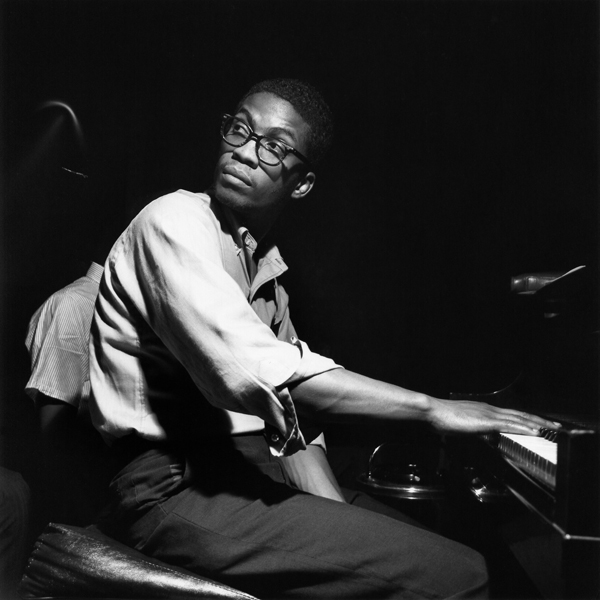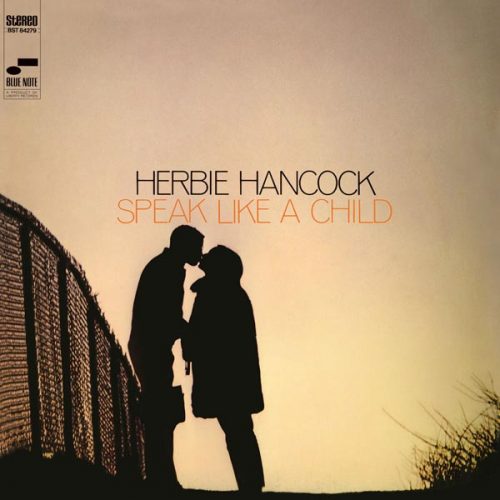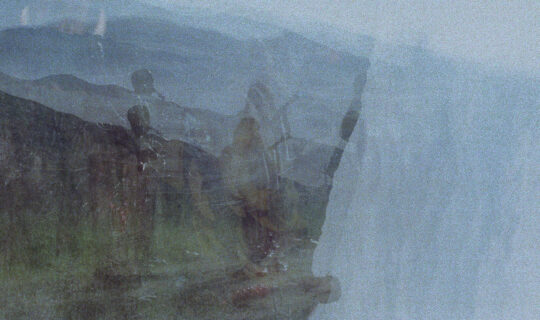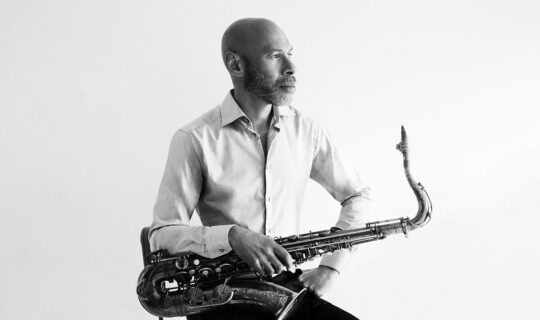July 22, 2015
There’s nothing like flunking, picking yourself up and learning from your mistakes. After Herbie Hancock’s 1965 Blue Note milestone, Maiden Voyage (his fifth for the label and most popular to date), he decided to conjure up a funk-inflected album in 1966 with a nine-piece band. The only problem was that at the time he didn’t know much about funk, or rock for that matter (that would be rectified in 1973 with his Columbia Records funk-filled fusion Head Hunters album highly influenced by the likes of Sly and JB) and still considered himself a “jazz snob.” That project ended up unissued.
Meanwhile, also in 1966, Herbie scored the soundtrack to director Michelangelo Antonioni’s first English-speaking film, Blow-Up, about the swinging London scene. The filmic experience came in handy later in 1969 when he composed the music for an episode of Bill Cosby’s Fat Albert and the Cosby Kids TV show that was released as the album Fat Albert Rotunda on Warners Bros. Records, and in 1986 when he wrote the Oscar-winning score for Bertrand Tavernier’s Round Midnight film starring Dexter Gordon.
The mid-60s was a busy time for Herbie, who was helping to pioneer new jazz ground as a member of the Miles Davis Quintet. Nevertheless he headed back into Rudy Van Gelder’s New Jersey studio in 1968 on March 6 and 9 to record Speak Like a Child, the long-awaited follow-up to Maiden Voyage. But in the almost three years since that release, Herbie had matured as a compelling pianist as well as an imaginative composer. He was being influenced by his Miles band mates—tenor saxophonist Wayne Shorter and the dynamic rhythm team of bassist Ron Carter and drummer Tony Williams—and was also all ears to the orchestral arrangements of Gil Evans, Oliver Nelson and Thad Jones, with whom he performed periodically.
As a result of the latter, Herbie enlisted three players—Thad on flugelhorn, Peter Phillips on bass trombone and Jerry Dodgion on alto flute—to color his tunes harmonically in lieu of sharing solo duties. In fact, neither Ron nor drummer Mickey Roker jump in with choruses either. Ron keeps the steady beat that undergirds the sessions and Mickey provides the drum drive. There are no round-robin solo contests on any of the six tracks. Instead, it’s largely Herbie’s show to deliver his bedazzling frills and fancies on the piano. Though it’s hardly a one-man show, there’s much to be said about listening to this album by focusing on Herbie, who puts on a captivating—but never show-offy—performance.
While Speak Like a Child shares a common lineage with Maiden Voyage in its infectious lyricism, Herbie was an evolutionary musician who was hearing music in a new and fresh way. His songbook for the session includes two tunes he had written that had become part of Miles’s set list: “Riot” (instigated by the social and political turbulence of the outside world) and “The Sorcerer” (Herbie’s descriptor for Miles the enchanter) that bookend the album. Herbie plays buoyantly on the tracks that are swinging, skipping affairs.
Another Herbie original, “Toys,” swings with horn/flute luminosity, with Herbie reflecting on the keys the riffs the trio of pastel colorists paint. The song dashes with the sensibility of a chase. This tune comes after the only non-Herbie composition, the bright and playful “First Trip” that Ron brought to the date. In a trio setting of piano-bass-drums, Ron’s bass is delightfully and importantly high in the mix, while Herbie sends up a sweeping flourish of notes and phrases.
The highlights of the album come in its most reflective moments, including the slow-tempo title track that exudes a quality of trusting innocence, soft dreams and wistful nostalgia. The finale is the resplendent ballad, “Goodbye to Childhood.” At once, grand and intimate, it’s a sobering end to the overall tender album. Talking to original liner note writer Nat Hentoff, Herbie said that the wellspring of the recording was “child-like. But not childish.”
There’s a sense of hope amidst the tumult—1968 was a hellacious year where less than a month after these sessions, Martin Luther King Jr. was assassinated, followed two months later by Robert Kennedy’s assassination—that belies the time. Again from the liners on the theme of the album, Herbie sagely spoke: “…there are certain elements of childhood we lose and wish we could have back—purity, spontaneity. When they do return to us, we’re at our best. So what I’m telling the world is: ‘Speak like a child.’”
Decades later, Herbie’s sentiment still holds true. Culturally, we need to “speak like a child” as much now as then. Speak Like a Child continues to shower beauty and belief, optimism and anticipation. It could very well be Herbie’s most profound jazz contribution.







